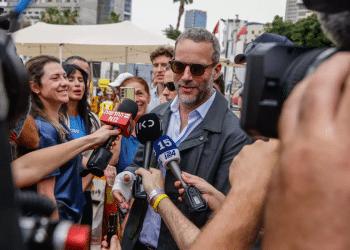Israel on Wednesday linked any assistance it might offer for the Gaza Strip's efforts against coronavirus to progress in its attempt to recover two Israeli soldiers who were killed during the 2014 war in the Palestinian enclave and whose remains are held by Hamas, the terrorist group controlling Gaza.
Gaza has so far reported 12 coronavirus cases and authorities worry that local health facilities – with just 96 ventilators for a population of 2 million – are insufficient to contain the contagion.
Follow Israel Hayom on Facebook and Twitter
Both Israel and Hamas have closed the Gaza border to non-essential traffic as a precaution against the spread of the infection. But with Gaza authorities appealing for foreign humanitarian assistance, Israel has been weighing its role.
"The moment there is talk of the humanitarian world in Gaza – Israel also has humanitarian needs, which are mainly the recovery of the fallen," Defense Minister Naftali Bennett told reporters, referring to fatalities sustained during Operation Protective Edge, fought in the summer of 2014.
"I think that we need to enter a broad dialogue about Gaza's and our humanitarian needs. It would not be right to disconnect these things ... and certainly, our hearts would be open to many things."
It was not immediately clear if Bennett was speaking of a possible condition on Israel providing direct aid, or also on it enabling the transfer of other aid over its border with Gaza.
Palestinian officials on Wednesday said 1,500 coronavirus testing kits would be brought into Gaza, with the help of the World Health Organization, after they were donated by the Palestinian administration in the Israeli-occupied West Bank.
Hamas said returning the two soldiers – as well as two Israeli civilians who crossed into the territory – would require negotiating a prisoner swap and would not be done in exchange for humanitarian aid.
"Israel bears responsibility for any consequences should the disease spread in Gaza because it has been blockading it for 13 years," said Hamas spokesman Fawzi Barhoum.
"A prisoner swap deal is a separate track," he said.




